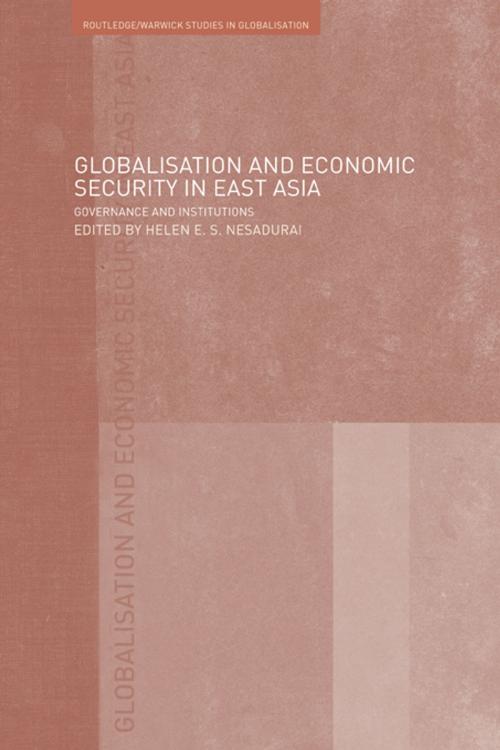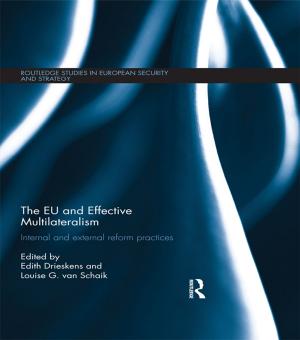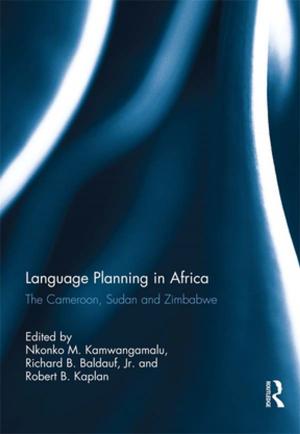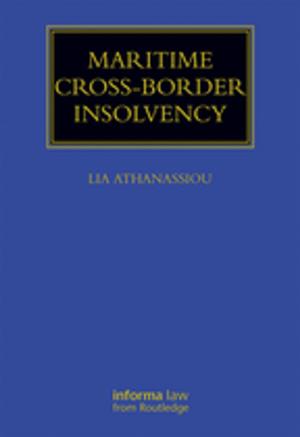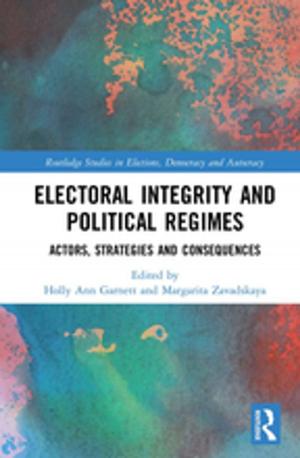Globalisation and Economic Security in East Asia
Governance and Institutions
Nonfiction, Social & Cultural Studies, Political Science, Business & Finance| Author: | ISBN: | 9781134190430 | |
| Publisher: | Taylor and Francis | Publication: | September 11, 2012 |
| Imprint: | Routledge | Language: | English |
| Author: | |
| ISBN: | 9781134190430 |
| Publisher: | Taylor and Francis |
| Publication: | September 11, 2012 |
| Imprint: | Routledge |
| Language: | English |
What is the relationship between globalization and economic security? Globalisation and Economic Security in East Asia is an incisive new engagement with this important question that uses detailed conceptual exploration and fresh empirical analysis.
Viewing traditional neorealist conceptions of economic security as overly narrow, this new study suggests that any conception of economic security in the contemporary era needs to also pay close attention to the nature of global capitalism, and the insecurities it generates for societies and individuals.
This uniquely open-ended approach to conceptualizing economic security is supported by the East Asian experience. The country case studies included here reveal that while economic security has largely been posed as one of ensuring sustainable economic growth and equitable social development, particularly following the 1997 to 1998 Asian financial crisis, other, more realist conceptions of economic security have not become irrelevant. This is also an exploration of whether and how national, regional and multilateral institutions, as well as non-state regional mechanisms, help policy makers meet the task of governing in the interests of economic security.
This book will be of great interest to all students and scholars of international relations, international political economy of East Asia globalization and security studies.
What is the relationship between globalization and economic security? Globalisation and Economic Security in East Asia is an incisive new engagement with this important question that uses detailed conceptual exploration and fresh empirical analysis.
Viewing traditional neorealist conceptions of economic security as overly narrow, this new study suggests that any conception of economic security in the contemporary era needs to also pay close attention to the nature of global capitalism, and the insecurities it generates for societies and individuals.
This uniquely open-ended approach to conceptualizing economic security is supported by the East Asian experience. The country case studies included here reveal that while economic security has largely been posed as one of ensuring sustainable economic growth and equitable social development, particularly following the 1997 to 1998 Asian financial crisis, other, more realist conceptions of economic security have not become irrelevant. This is also an exploration of whether and how national, regional and multilateral institutions, as well as non-state regional mechanisms, help policy makers meet the task of governing in the interests of economic security.
This book will be of great interest to all students and scholars of international relations, international political economy of East Asia globalization and security studies.
